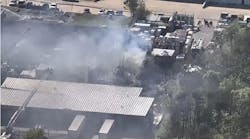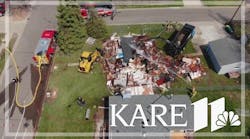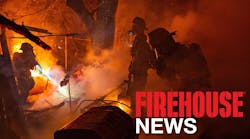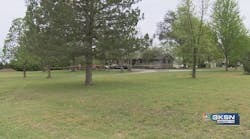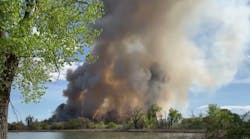Like many people, I do a lot of reading, especially on airplanes, where I seem to spend way too much of my time. I read not only about fire service and homeland security issues, but also about organizational leadership, management, government and politics in general. Newspapers and magazines seem to attract my attention the most. It’s obvious that the national political landscape is changing, and many people are writing about it. These changes can’t help but impact the fire and emergency services arena as various decisions are made at the local, state and national levels of government.
• Public perception – As one example, the July 2011 edition of the magazine Governing leads with two articles that directly relate to the fire service (especially the career service) and the new political landscape that is emerging. One is titled “Public Disunion” and the other is titled “Rewriting Retirement.” Both authors focus on the premise that public employee wages and benefits are the root cause of the budget shortfalls being experienced in state and local government.
The articles identify shortfalls in funding for retirement plans as a prime example of unsustainable benefits for public employees. It is professed that the public has come to view the benefits of public workers as exorbitant. Propaganda asserting this has been repeated over and over throughout our society, and it is beginning to gain footing in some areas. In fairness to the authors of these articles, they also interviewed labor leaders and published their points of view as well. It’s obvious that the parties quoted in the articles are miles apart in their views of the current state of affairs and how the country got here.
• Biased scrutiny – Another area receiving more scrutiny than ever before relates to the resources necessary to provide public safety services at the local level. Local government leaders are hiring consultants who come forth with pre-determined findings of how police and fire departments can be re-invented with the result being increased service levels to the public with no negative effect on public safety. A county in northern California recently convened what it calls a civil grand jury to review fire department management effectiveness, deployment and response models, and other important aspects of fire protection, EMS and other areas of service delivery. The process was obviously stacked against the fire service up front and the published findings were less than flattering to the fire departments in that county.
Whether it’s consultants, civil grand juries or any other person or group with an opinion, berating the fire service and representing the importance of meeting national fire service codes and standards as irrelevant and unnecessary is risky business for the safety of the public and the safety of firefighters.
• Government focus – Issues surrounding the debt limit and spending cuts at the federal level have consumed almost all of the energy of Congress and the Administration for months now. There is no reason to believe this will temper over the next 15 months, or even more. This is a critical issue for our country and has already changed the political landscape on a very broad scale, which will most likely continue for years to come. With entitlements and interest payments on the national debt virtually off the table for consideration in the debt-reduction process, cutting what will amount to a couple of trillion dollars from the federal budget over the next decade is quite likely to have some impact on public safety funding, including funding for fire service programs.
It’s obvious that we’re living in a much different political world than just a couple of years ago. We can’t deny the importance of our nation’s economic and employment recovery as the number-one issue we all face. We need to keep writing about it, talking about it and taking positive steps to address it. There will no doubt be sacrifices that must be made along the way.
The road ahead of us as a fire service is full of new and different challenges that must be met head-on by the leaders of our industry. Part of their reality is that they are operating in a much different political landscape than we’ve been accustomed to in the past. The success of the fire service in addressing our future challenges will depend on how effectively we can come together to influence the decision-making process of government, at all levels.
